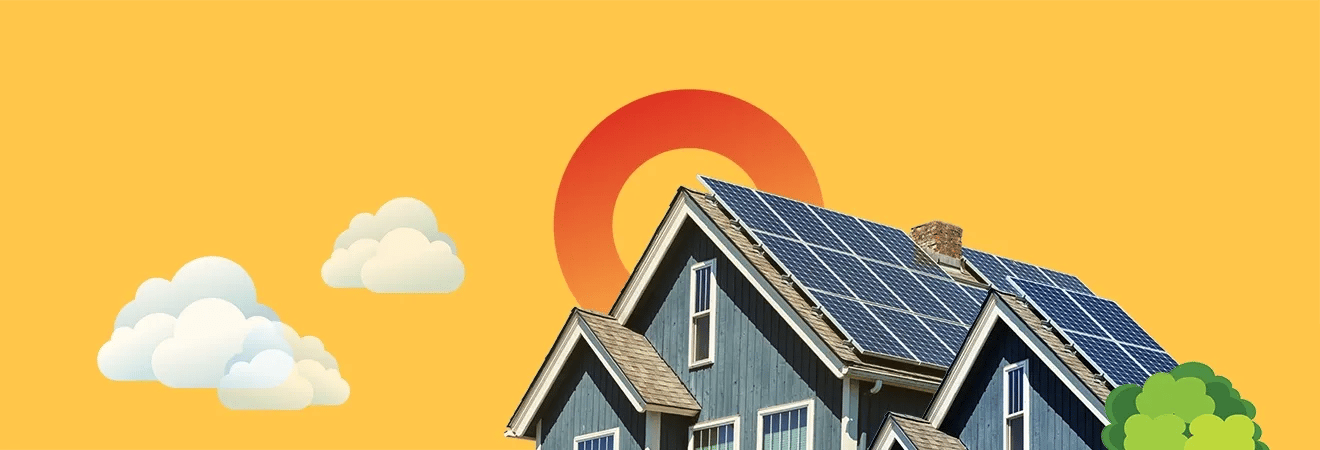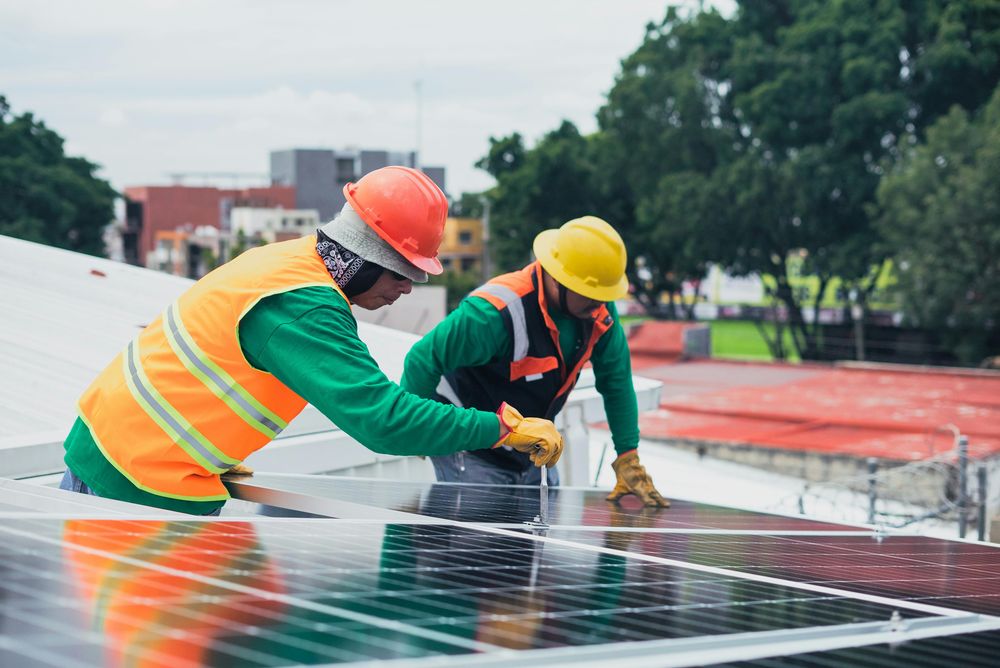Average Lifespan of Solar Panels: How Long Do They Stay Efficient?
Riddhi Kumar • 2024-07-03 • 4min read
Solar panels have become an increasingly popular renewable energy source, offering a sustainable alternative to fossil fuels. As more homeowners and businesses turn to solar power, understanding the longevity and lifespan of solar panels becomes essential. This article explains the solar panel life expectancy, the factors influencing their durability and outlines best practices for maintenance to ensure they reach their full potential.

Solar panels have become an increasingly popular renewable energy source, offering a sustainable alternative to fossil fuels. As more homeowners and businesses turn to solar power, understanding the longevity and lifespan of solar panels becomes essential.
This article explains the solar panel life expectancy, the factors influencing their durability and outlines best practices for maintenance to ensure they reach their full potential.
What is The Average Lifespan of Solar Panels?
On average, solar panels are designed to last between 25 to 30 years . This lifespan is due to the durable materials and advanced technology used in their manufacturing. However, this does not mean they stop generating electricity after this period. The efficiency of solar panels gradually decreases over time, but they can still produce energy for many years beyond their expected lifespan.
The industry standard typically warrants that solar panels operate at about 80% of their original capacity after 25 years, ensuring they still provide substantial energy savings for homeowners and businesses alike.
Solar Panel Degradation Rate
The degradation rate refers to the percentage of efficiency a solar panel loses each year. Most modern solar panels experience a degradation rate of about 0.5% to 1% per year . Through its research, the National Renewable Energy Laboratory has confirmed that solar panel degradation rates remain within 1% every year.
This means that after 10 years, a panel may operate at approximately 90-95% of its original capacity, depending on the specific degradation rate and the conditions it has been subjected to over time.
Factors Affecting The Lifespan of Solar Panels
Several factors can influence how long solar panels can last. These include:
Type of solar panels
The type of solar panels used can significantly affect its lifespan. Monocrystalline solar panels, for example, are known for their higher efficiency and durability, often lasting longer than the other types. Monocrystalline solar panels are made from a single continuous crystal structure, which contributes to their extended lifespan and superior performance.
On the other hand, polycrystalline solar panels are made from multiple silicon crystals melted together, which generally results in a shorter lifespan and slightly lower efficiency. Thin-film solar panels, while more affordable, tend to have the shortest lifespan due to their delicate composition.
Installation Quality
The installation quality of solar panels can also impact their lifespan. Improper installation or using low-quality materials can lead to damage and a decrease in efficiency over time. It is crucial to have professional and experienced solar panel installers correctly set up the solar panel system to ensure its longevity.
Orientation and Angle
The orientation and angle of solar panels play a vital role in their performance and overall lifespan. Ideally, solar panels should be installed facing south with an inclination that corresponds with the geographic latitude. This positioning allows for maximum exposure to sunlight throughout the day, optimizing energy production.
Environmental factors
As mentioned earlier, exposure to environmental factors such as extreme temperatures, humidity, and UV rays can affect solar panel efficiency and lifespan. Choosing a suitable location for installation is crucial in ensuring optimal performance and solar energy production.
Maintenance and Cleaning
Regular maintenance and cleaning can also impact the lifespan of solar panels. Accumulation of dirt, debris, or snow on the surface of panels can hinder their ability to absorb sunlight efficiently. It is essential to keep them clean and clear for optimal performance.
How To Extend The Lifespan of Solar Panels?
Firstly, it is important to understand that solar panel degradation is unavoidable. While most solar panels are designed to last for a considerable period, there are steps you can take to prolong their lifespan further. These include:
Professional Installation
As mentioned earlier, proper installation is crucial in ensuring the longevity of solar panels. Hiring a professional installer with experience and expertise in the solar industry can help avoid any potential issues that may arise from incorrect installation and make your solar panels last longer.
Investing in High-Quality Solar Panels
Investing in a high-quality solar energy system can also contribute to their longevity. Though they may come at a higher initial cost, the durability and efficiency of premium solar panels can make them more cost-effective in the long run.
Choosing solar panels from reputable solar panel manufacturers is equally important, so make sure you research and select a reliable brand for your solar panel systems.
Regular Maintenance and Cleaning
Regular maintenance and cleaning of solar energy systems can help prevent damage and prolong their lifespan. It is recommended to clean your solar panels at least twice a year, or more often if you live in an area with high levels of dust or pollution to make them last for longer.
Monitoring Performance
Monitoring the performance of your solar panel system regularly can help detect any issues early on and take necessary steps to address them. This proactive approach can save you from costly repairs and ensure that your solar panels continue to operate efficiently.
Upgrading Components
As technology continues to advance, upgrading certain components of your solar panel system like solar batteries, solar modules, etc. can help improve performance and make your solar panels last longer.
For example, replacing an old inverter with a newer, more efficient one can boost overall energy production and reduce the strain on your solar panels.

When Should You Consider Upgrading Your Solar Panels?
While solar panels have a long lifespan, there may come a time when they no longer produce enough energy to meet your needs efficiently. If you notice a significant decrease in efficiency or decrease in savings on electricity bills, it may be time to replace solar panels with newer ones.
While it may increase the cost of your solar investment, it is worth considering upgrading your solar panel system if there have been significant advancements in technology since the installation of your current panels.
Conclusion
Solar panels are a long-term investment that can provide significant energy savings for many years. Understanding solar panel lifespan, the rate at which solar panels degrade and the factors that influence it can help you make informed decisions when it comes to maintenance and upgrades.
By following proper installation procedures, regularly maintaining and monitoring your panels, and considering upgrades when necessary, you can ensure that your solar panel system continues to provide clean and renewable energy for years to come.
So, it is essential to keep these factors in mind when investing in solar panels for maximum efficiency and longevity!